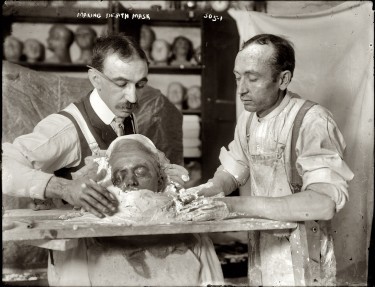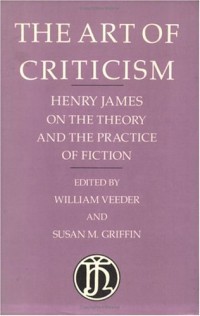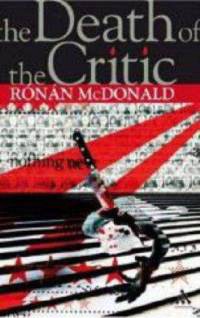A Short History Of Book Reviewing's Long Decline
A Short History Of Book Reviewing’s Long Decline
by Jane Hu

There have been enough essays on the death of book reading, but have there been enough words devoted to discussing the decline of book reviewing? In the last decade or so — yes, indeed, as we’ve all wrestled with how the internet influences everything we do, including reading, writing, and writing about books (Tolstoy LOL tl;dr). But while the words “book-review” made its first print appearance as a headline in 1861 to just that — a review of a book titled How to Talk: A Pocket of Speaking, Conversation, and Debating (verdict: “The present work has the additional recommendation of an unmistakably useful subject, which is lucidly treated”) — the practice of criticizing the critics has always been with us. Most often, dissatisfaction with the state of book reviewing has come not from the readers who are the reviewers’ intended audience, but from writers who have felt their work mishandled, unjustly ignored, or cruelly misunderstood.
Launched in 1665, the Parisian Journal des Sçavans (“sçavans,” a word related to “savant,” and denominating a version of the French “scholar”) was the first publication devoted entirely to the task of criticism. Its aim was “to give readers (and scholars) a universal account of the state of learning,” with reviews “conceived of as installments of a continuous encyclopaedia to be carried on until the end of time.” The vision here was broad and expansive. In its pursuit of compiling scientific knowledge, Journal des Sçavans focused on objectivity; the reviews largely aimed to document findings, discoveries, and inventions in the world of biology and technology.
By the time of the first quote “book-review,” criticism had been in circulation for centuries — long enough for writers to know how it can sting. Understandably, then, the critic’s skepticism of an artist’s genius has invariably existed alongside the artist’s doubt over the critic’s judgment. It’s coincidence but seems fitting that shortly after the Journal des Sçavans launched, Alexander Pope was making such observations as:
Such shameless bards we have; and yet ’tis true
There are as mad abandon’d critics too.
The bookful blockhead ignorantly read,
With loads of learned lumber in his head,
With his own tongue still edifies his ears,
And always list’ning to himself appears.
(It’s fun to imagine what Pope would have made of James Franco, book critic, opening with the sally: “I read a lot.”)
Pope was not the first (or last) to register the observation that critics are philistines who only listen to themselves. Another common critique: that no one else listens to them. In 1847, Edgar Allen Poe reviewed several other reviewers of Nathaniel Hawthorne and found that:
These criticisms, however, seemed to have little effect on the popular taste — at least, if we are to form any idea of the popular taste by reference to its expression in the newspapers, or by the sale of the author’s book.
A few years following, Hawthorne appraised his own work in the 1851 preface to Twice-Told Tales. He noted that the book, then in its third edition, initially “failed, it is true — nor could it have been otherwise — in winning an extensive popularity.” He went on to speak of the dangers that too much positive criticism can hold for the writer — and the benefits of a book having received no public notices at all. (How sincere he was on this latter point, we can only conjecture. But writers who’ve had their books skipped over by the New York Times Book Review take note!)
Occasionally, however, when he deemed them entirely forgotten, a paragraph or an article, from a native or foreign critic, would gratify his instincts of authorship with unexpected praise; — too generous praise, indeed, and too little alloyed with censure, which, therefore, he learned the better to inflict himself. And, by-the-by, it is a very suspicious symptom of a deficiency of the popular element in a book, when it calls forth no harsh criticism. This has been particularly the fortune of the Twice-Told Tales. They made no enemies, and were so little known and talked about, that those who read, and chanced to like them, were apt to conceive the sort of kindness for the book, which a person naturally feels for a discovery of his own.
In a summer letter to Hawthorne, written around this time, Melville brings up another danger of criticism: the vast reduction of an artist to a brand.
I have seen and heard many flattering (in a publisher’s point of view) allusions to the “Seven Gables.” And I have seen “Tales,” and “A New Volume” announced, by N. H. So upon the whole, I say to myself, this N. H. is in the ascendant. My dear Sir, they begin to patronize. All Fame is patronage. Let me be infamous: there is no patronage in that. What “reputation” H. M. has is horrible. Think of it! To go down to posterity is bad enough, any way; but to go down as a “man who lived among the cannibals”!
Melville places “reputation” in scare quotes and distances himself from “a publisher’s point of view.” The fear that one’s name will endure as the wrong kind — represented and simplified to signify in the wrong ways — speaks to the artist’s anxiety of selling out. (Don’t worry, Melville. You good. Just look at Clarel. Defs not selling out.)

In a characteristically sassy letter to Howard Sturgis, Henry James registers his distance from reviewers as well:
I greatly applaud the tact with which you tell me that scarce a human being will understand a word, or an intention, or an artistic element or glimmer of any sort, of my book. I tell myself — and the “reviews” tell me — such truths in much cruder fashion. But it’s an old, old story — and if I “minded” now as much as I once did, I should be well beneath the sod. (May 1899)
We can all be grateful James never minded — and made less and less sense (cf Golden Bowl) — especially as he neared the sod.
***
In December 1900, a “Veteran Book Reviewer,” otherwise anonymous, wrote a commentary titled “Up-to-Date Book Reviewing” for The Independent:
The decline of the book review is first of all due, as Mr. Halsey said in his interesting but too discursive paper in The Independent, to the fact that there are too many books to review.
Mo books, mo anonymous veteran book reviewers.
Not long after, American journalist Paul Elmore More was contending that writers might sometimes actually thrive on criticism: “When I did most of my work there was almost a critical vacuum in this country and in England… It was something of an achievement — I say it unblushingly — just to keep going in such a desert.”
But more criticism doesn’t necessarily equate to generous and varied discussion. Writing in 1917, H. L. Mencken lobbed this critique at phonies:
When I began to practice as a critic, in 1908, there was still plenty of excuse for putting it on. It was a time of almost inconceivable complacency and conformity. Hamilton Wright Mabie was still alive and still taken seriously, and all the young pedagogues who aspired to the critical gown imitated him in his watchful stupidity.
Nothing like a deluge to make one long for the desert. In 1928, Edmund Wilson wrote in “The Critic Who Does Not Exist”: “It is astonishing to observe, in America, in spite of our floods of literary journalism, to what extent the literary atmosphere is a non-conductor of criticism.”
***
Why do so many book reviews exist? In part to keep the book reviewer fed, as the following modernists would suggest:
• Virginia Woolf (1939): “He has to review; for he has to live; and he has to live, since most reviewers come of the educated class, according to the standards of that class. Thus he has to write often, and he has to write much. There is, it seems, only one alleviation of the horror, that he enjoys telling authors why he likes or dislikes their books. “
• George Orwell (1946): “In much more than nine cases out of ten the only objectively truthful criticism would be ‘This book is worthless’, while the truth about the reviewer’s own reaction would probably be “This book does not interest me in any way, and I would not write about it unless I were paid to.”
• Cyril Connolly (1948): “[R]eviewing is a whole-time job with a half-time salary, a job in which the best in him is generally expended on the mediocre in others.”
But the most quoted rejection of the book review as such might be Elizabeth Hardwick’s “The Decline of Book Reviewing,” which appeared in Harper’s in 1959, and the wisdom of which still holds today:
In America, now… a genius may indeed go to his grave unread, but he will hardly have gone to it unpraised. Sweet, bland commendations fall everywhere upon the scene; a universal, if somewhat lobotomized, accommodation reigns. Everyone is found to have “filled a need,” and is to be “thanked” for something and to be excused for “minor faults in an otherwise excellent work.”
Fast forward nearly three decades and you have Harold Bloom arguing Hardwick’s point, just from the other side: “Instead of a reader who reads lovingly, with a kind of disinterest, you get tendentious reading, politicized reading.”
Enter Jonathan Franzen (Canon Preacher, Part II) in his “Perchance to dream” essay, published by Harper’s in 1996, five years before Oprah invited him to sit on her couch:
The media’s obsessive interest in my youthfulness surprised me. So did the money. Boosted by the optimism of publishers who imagined that an essentially dark, contrarian entertainment might somehow sell a zillion copies, I made enough to fund the writing of my next book. But the biggest surprise — the true measure of how little I’d heeded my own warning in The Twenty-Seventh City — was the failure of my culturally engaged novel to engage with the culture. I’d intended to provoke; what I got instead was sixty reviews in a vacuum.
Instead of taking up Hardwick’s rejection of banal commentary, or even Bloom’s urge to follow the text lovingly, Franzen made book reviewing (media in tow) about what truly matters today: himself. (At least he hadn’t been called “the man who lived among the cannibals.”) Interesting also to hear in his use of “vacuum” an echo, as if caught in a circling reverb, of Paul Elmore More’s decades-before lament on the poor state of American criticism.
***
As we approached 2000, with newspapers shrinking and the Internet swelling, reports on the state of book reviewing become markedly bleak. I would call these pieces Manifestos, if they weren’t so despondent in tone. In “The Amazing Disappearing Book Review Section,” a 2001 piece for Salon, Kevin Berger examined the San Francisco Chronicle’s decision to do away with its pullout, 12-page book section (while also moving book reviews to the back of its Sunday entertainment section), finding it illustrative of a wider move to replace book criticism with other forms of pop culture observation. A dour mood is struck at the beginning of the piece when one of the paper’s editors, leading Berger to the department, admits, “I’ve actually never been down there.” The department’s out-of-sight, out-of-mind location mirrored its exile to the newspaper’s back pages: “A sign on a far wall said ‘Book Review,’ followed by an arrow.” At this millennial mark, entering the realm of book reviewing had become akin to placing yourself in a horror film.
The reduced status of printed book reviews was spurred, at least in part, by the increase of online discussions, which brought with them their own type of horror: snark. In 2003, Heidi Julavits lent a determinedly upbeat response in the inaugural issue of The Believer (the name of the magazine signaling its own ardency) in the essay “Rejoice! Believe! Be Strong and Read Hard!”: “The upshot, however, is this: snark is a reflexive disorder, whether those who employ it realize it or not; the pointlessness of fiction only comes back to suggest the pointlessness of its commentator.”
If your commentators only feed you snark, then what is there left for fiction writers to chew on? The point wasn’t to divide online from paper, but to see them as mutually benefiting (or else dismantling) one another. As Michael Connelly noted in the L.A. Times in 2007: “People who read books also read newspapers.” People who read books or newspapers, ultimately, read.
Around this time, Richard Price, writing at Critical Mass, offered his own assessment of how the new environment was shifting criticism: “I think our crisis is instant evaluation versus expansive engagement, real time versus reflective time, commodity versus community, product versus process. Substituting a user’s rating for a reader’s rearrangement threatens to turn literature into a lawn ornament.” (A few months later, Nan Talese said: “I think the best book reviews are the ones in People magazine and Entertainment Weekly.”)

“Who Killed the Literary Critic?” was the subject of a 2008 Salon conversation between critics Laura Miller and Louis Bayard. The trigger for the discussion: a book called The Death of the Critic which hypothesized that the lack of both public intellectuals and a rigorous academic community of inquiry had caused criticism to founder. Miller considered how the increase of “too many other entertainment options” takes away from reading time. Against this, both Miller and Bayard discuss the “fuck you” aspect of modernism’s output as a factor that might drive readers to kindlier, more benevolent texts — novels and television shows that don’t wish to frighten audiences with their aggressive difficulty. “There are no critical movements evident today,” observed Miller. (And even if there were, they’re not all going to be online, or in one forum. Any real critical movement simply should not be confined to one community or some new means of communication.) Perhaps a large problem in the decline of good criticism is that readers no longer know how, or where, to find critics, and, more importantly, how to define what makes it Good.
Writing for the New Yorker in 2008 about the Sam Zell-mandated cutbacks at the L.A. Times Book Review, Dana Goodyear quoted a friend as saying: “Can you imagine if this were happening at the New York Times?” When the Washington Post published its last edition of Book World the next year, Dick Meyer mourned it as an “injury to our collective literacy,” adding that, “If that sounds snobbish, well, so be it.” Books, he opined, reign on the media chain of “columns, blogs, TV shows, magazine articles and Twitter tweets.” Sam Tannenhaus struck a similar gloomy note in an interview with the Oxford American: “It’s a concern, not only for authors and readers but also for reviewers, who practice an art whose cultural status seems to be going the way of the German mark during the Weimar Period.”
As large cultural movements occur, book review culture can’t help but be influenced. In an Atlantic essay, Lorin Stein, after making due note of Sept. 11, rightly, refers to the ways in which online discourse has forced book reviewing to change its terms. Amazon and Google are killing the book, are killing the newspaper, are killing the book review. If the Internet has allowed anything, it has allowed this argument to be replicated ad infinitum across it. And I’m looking and hoping for a story that at least begins to let us see where book criticism might go (and if it should go at all).
Elizabeth Gumport’s 2011 essay (and a true manifesto) “Against Reviews” for n+1 is an engaging start:
If we wouldn’t describe a book to someone we wanted to sleep with, we shouldn’t write about it. It is time to stop writing — and reading — reviews. The old faiths have passed away; the new age requires a new form.
Like Hardwick, Gumport’s piece will likely have some staying power. Maybe if our contemporary reviewers tried for the same kind of searching criticism these writers do, we’d be getting somewhere.
Who first screamed death of the book review? Did they really even know what a book review was, is and could be?
Related: What Makes A Great Critic?
Jane Hu judges a book review by its title. “Making death mask” photo courtesy of Obit.
